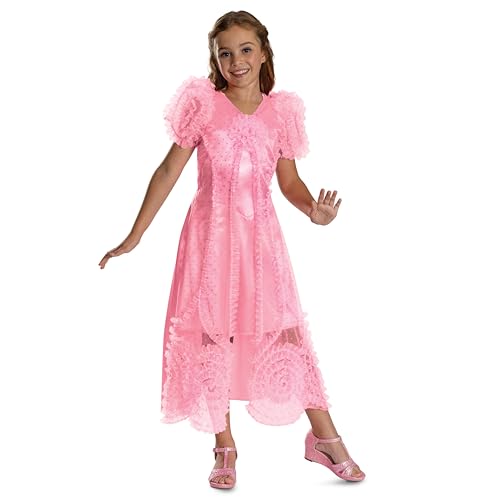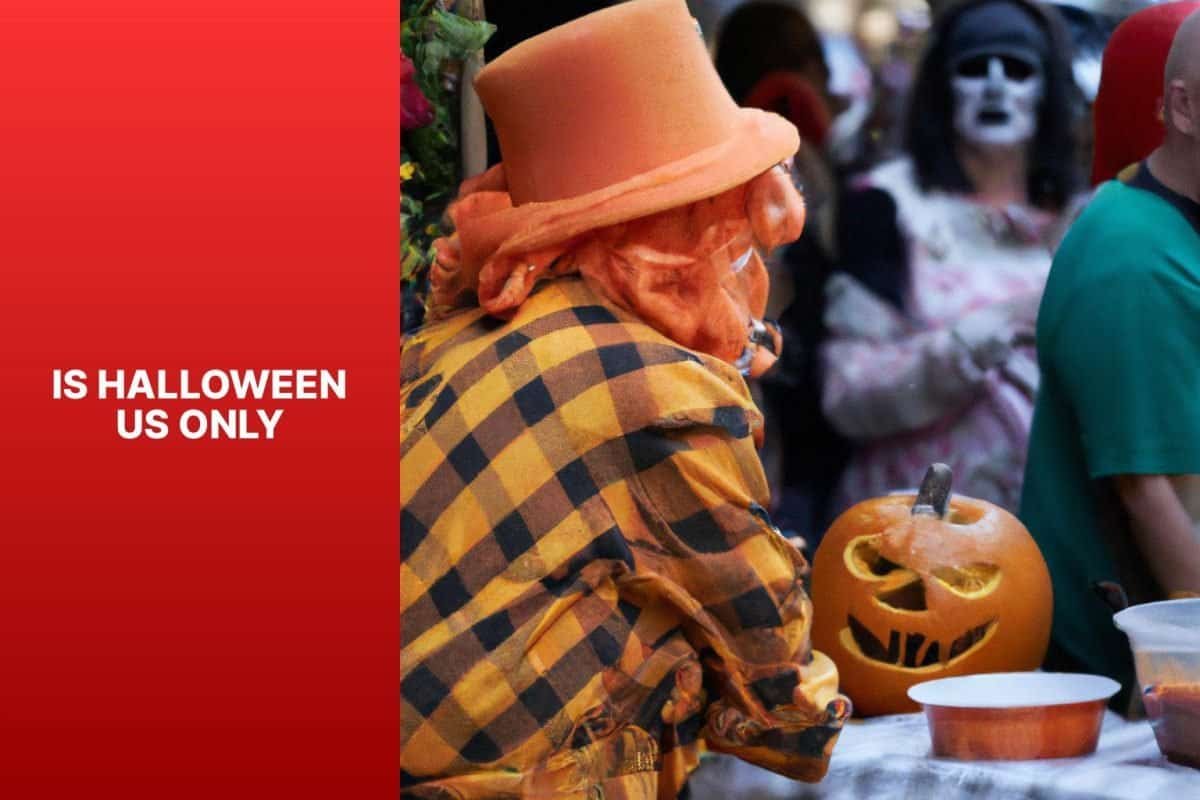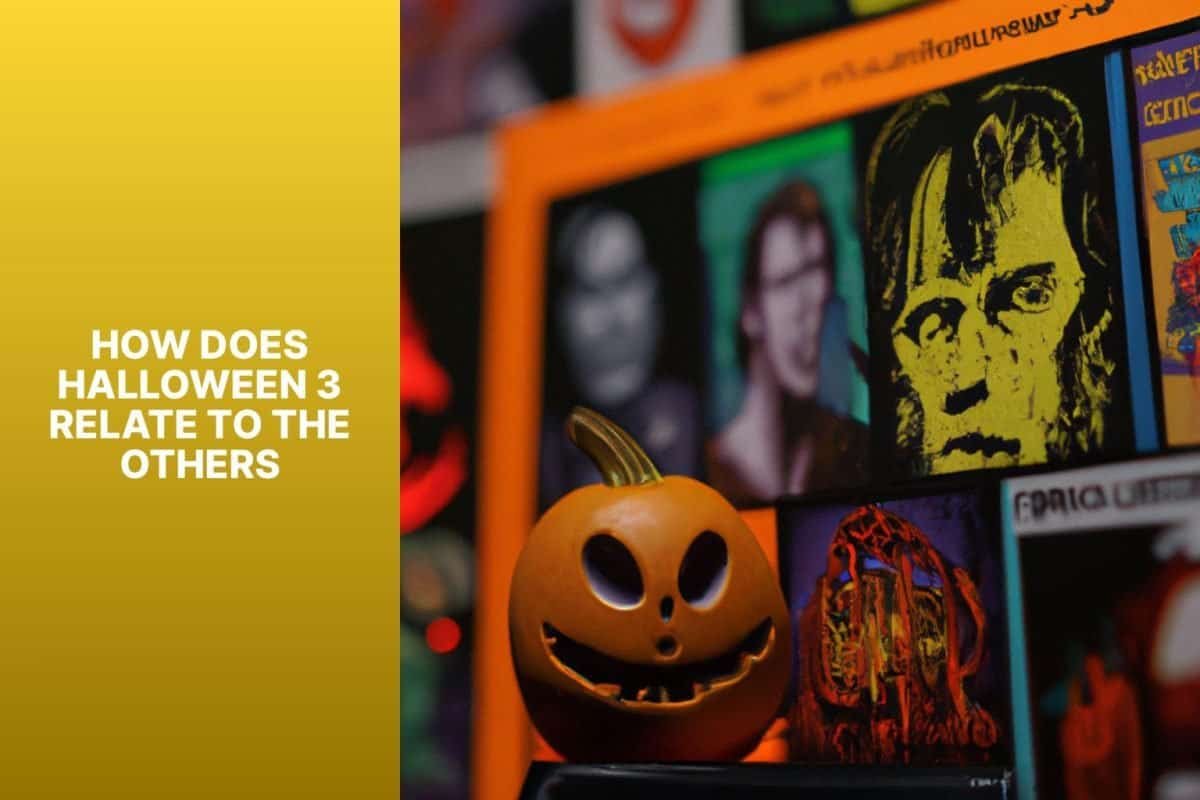Halloween, with its spooky costumes and traditions, has become a widely celebrated holiday in many parts of the world. Its compatibility with Christian beliefs and values can be a topic of discussion and interpretation among Christians. To understand the Christian perspective on Halloween, it is essential to delve into the origin and history of this holiday. Examining historical Christian views, different interpretations among Christian denominations, and cultural influences can shed light on how Christians navigate the celebration of Halloween. This article aims to explore these topics and address the question of whether Christians can celebrate Halloween. It will also offer alternative ways for Christians to approach the holiday, such as hosting church-organized events, emphasizing the spiritual aspect, and engaging in philanthropic activities. Understanding the different viewpoints and considerations can help Christians make informed decisions about their participation in Halloween festivities.
Key takeaway:
- Halloween can be celebrated by Christians with different perspectives: Historical Christian views on Halloween vary, and there are different interpretations among Christian denominations. Cultural and regional influences also play a role in shaping Christian views on the holiday.
- Christians can evaluate the intent and compatibility of Halloween celebrations: Christians should examine the meaning behind Halloween celebrations and assess whether they align with their beliefs and values. Personal convictions and decision-making play an important role in determining if Christians can participate in Halloween.
- Alternative approaches for Christians to consider: Instead of traditional Halloween celebrations, Christians can prioritize hosting church-organized events, emphasizing the spiritual aspect of the holiday, or engaging in philanthropic activities. Finding a balance between faith and Halloween celebrations is key.
Understanding the Origin and History of Halloween
Understanding the Origin and History of Halloween
Halloween traces its roots back to ancient Celtic festivals, specifically the Samhain festival. Samhain was a significant event marking the end of the harvest season and the onset of winter. According to belief, during Samhain, the line between the living and the dead became blurred, allowing spirits to freely roam. To appease these spirits, Celts would light bonfires and don costumes.
When Christianity spread to Celtic regions, it assimilated some of the customs of Samhain into its own traditions. In the 8th century, Pope Gregory III designated November 1st as All Saints’ Day, a day to honor all saints and martyrs. The preceding evening, initially referred to as All Hallows’ Eve, gradually transformed into Halloween.
Halloween did not gain widespread popularity in America until the 19th century, when Irish and Scottish immigrants brought their own customs. Over time, Halloween in America evolved to encompass activities like trick-or-treating and pumpkin carving, influenced by diverse cultural beliefs.
Comprehending the origin and history of Halloween enables us to appreciate its cultural significance. This holiday is a time for individuals to unite in commemorating the changing seasons, remembering departed loved ones, and participating in playful and imaginative traditions. Halloween continuously adapts with new customs and practices, reflecting the diverse influences that have molded this celebration.
Christian Perspectives on Halloween
Discover the intriguing historical views, diverse interpretations among denominations, and the impact of cultural and regional influences. Unveiling the fascinating layers of this topic, we’ll explore how Christians approach the celebration of Halloween, shedding light on their beliefs, practices, and the rich tapestry of perspectives within the Christian community. Prepare to delve into the complexities and nuances surrounding Halloween from a Christian standpoint.
Historical Christian Views on Halloween
Historical Christian views on Halloween can vary. Some Christians view Halloween as a pagan celebration rooted in witchcraft and idolatry. They believe it is incompatible with their faith and choose not to participate. Others appreciate the historical and cultural aspects of Halloween while distancing themselves from its pagan elements. They celebrate Halloween in a Christian-focused manner, emphasizing community, love, and outreach.
Christian denominations have different interpretations of Halloween. Some condemn it, while others embrace it for evangelism and community engagement. Cultural and regional influences also shape Historical Christian Views on Halloween. In Ireland, for example, Halloween has deep Christian roots and is celebrated as a religious holiday.
Ultimately, whether Christians can celebrate Halloween depends on their personal convictions and how well it aligns with their beliefs and values. Christians should carefully evaluate their own beliefs and consult religious leaders before making a decision.
Pro-tip: Instead of focusing solely on the historical aspects of Halloween, Christians can use the holiday as an opportunity to cultivate love, compassion, and service. They can engage in philanthropic activities, host church events, and merge their faith with the cultural celebration.
Different Interpretations among Christian Denominations
Different interpretations among Christian denominations regarding Halloween are diverse. While some see it as a secular holiday with pagan roots and prefer not to partake, others view it as a chance for evangelism and engage in alternative celebrations that align with their Christian beliefs. Certain denominations consider Halloween more of a cultural event rather than a religious one. These interpretations are influenced by various factors such as theological perspectives, regional traditions, and historical influences. It is important to note that there is no unified stance among Christian denominations on Halloween, and individual believers within each denomination may hold their own convictions about participating or abstaining from Halloween festivities.
Cultural and Regional Influences on Christian Views
Cultural and regional influences greatly shape Christian views about Halloween. The perception and approach of Christians towards this holiday vary depending on their specific culture and region.
In certain societies, Halloween is deeply rooted in superstitions and pagan customs, which prompts Christians to refrain from participating. In other cultures where Halloween is regarded as harmless and festive, Christians may adopt a more permissive attitude towards it.
These influences play a significant role in determining how local Christian communities accept and incorporate Halloween. Some religious denominations view Halloween as an opportunity for community engagement, while others discourage their followers from participating due to historical associations or spiritual concerns.
Ultimately, Christians are compelled to carefully analyze these influences and align their beliefs and practices with the teachings of the Bible and their own personal convictions.
Can Christians Celebrate Halloween?
Can Christians really embrace the spooky festivities of Halloween? Let’s delve into the heart of the matter and explore the intent and meaning behind these celebrations. We’ll also take a closer look at how Halloween aligns (or doesn’t) with Christian beliefs and values. We’ll consider the importance of personal convictions in making a decision that aligns with one’s faith. It’s time to unravel the complexities and shed some light on whether Christians can truly find a place in the world of Halloween.
Examining the Intent and Meaning Behind Celebrations
Examining the intent and meaning behind celebrations is crucial for Christians when considering their participation in Halloween. Understanding the motivation behind the festivities allows individuals to make informed decisions that align with their beliefs and values. Halloween has evolved over time and carries various meanings for different people.
1. Recognize cultural significance: Halloween has roots in ancient pagan traditions, but it has also been influenced by Christian practices. By acknowledging the historical context, Christians can engage in conversations that foster understanding and respect among different perspectives.
2. Assess personal intentions: Christians should evaluate their motivations for participating in Halloween. Is it purely for fun and entertainment, or does it hold a deeper spiritual meaning? Ensuring that the intent behind celebrations aligns with Christian values helps maintain integrity.
3. Consider potential conflicts: Some aspects of Halloween, such as its association with darkness and occult symbols, may conflict with Christian beliefs. Christians should examine whether certain activities or decorations may compromise their faith or lead to misunderstanding.
4. Seek guidance from Scripture and community: Christians can turn to biblical teachings and seek advice from fellow believers to gain clarity on how to approach Halloween. Engaging in open discussions within church communities provides valuable perspectives and insights.
5. Emphasize alternative ways to celebrate: Christians can explore alternative ways to celebrate Halloween that align with their faith. This could involve hosting church-organized events, focusing on the spiritual aspect of the holiday, or engaging in philanthropic activities that benefit others.
Pro-tip: Reflecting on the intent and meaning behind celebrations helps Christians make informed choices that are consistent with their faith. By approaching Halloween with discernment and engaging in meaningful discussions, individuals can find a balance between participating in festivities and upholding their Christian beliefs.
Evaluating the Compatibility with Christian Beliefs and Values
Evaluating the compatibility with Christian beliefs and values in Halloween celebrations is of utmost importance for Christians. It is crucial to examine how Halloween traditions align with biblical teachings and core Christian values.
One crucial aspect to consider is the intention and significance behind these celebrations. Christians must ensure that their participation in Halloween festivities does not contradict their faith or promote values that are contrary to Christian teachings. This involves carefully analyzing elements of Halloween, including costumes, decorations, and activities, to determine if they align with Christian principles.
Another factor to take into account is how Halloween celebrations may impact an individual’s personal faith journey and relationship with God. Christians should evaluate whether participating in Halloween activities strengthens their faith or creates conflicts. Personal convictions play a crucial role in this evaluation, as different individuals have varying views and sensitivities towards certain aspects of Halloween.
Ultimately, the compatibility with Christian beliefs and values is a matter of discernment for each believer. It is vital to approach this decision prayerfully and seek guidance from God in order to make informed decisions about celebrating Halloween as a Christian.
Historical context: Halloween, also known as All Hallows’ Eve, originated from ancient Celtic festivals and later incorporated Christian practices. In the 8th century, Pope Gregory III designated November 1 as All Saints’ Day, a time to honor Christian saints and martyrs. The evening before became known as All Hallows’ Eve, which eventually transformed into the Halloween we know today. Throughout time, Halloween has evolved into a fusion of ancient traditions and cultural practices, with varied interpretations among Christians.
Personal Convictions and Decision-making
Personal convictions and decision-making play a crucial role for Christians in determining whether or not to partake in Halloween festivities. It is imperative for each believer to reflect on their own beliefs and values in order to make an informed choice.
It is important to assess the purpose and significance behind Halloween celebrations and assess if they align with Christian principles. Some individuals within the Christian community may opt out of participating in Halloween due to reservations regarding its origins, association with darkness, or pagan customs.
On the other hand, some may see Halloween as an opportunity to engage with the local community and share their faith. Ultimately, personal convictions should serve as a guiding light throughout the decision-making process.
Christians ought to seek guidance through prayer, scripture, and the Holy Spirit. Engaging in respectful conversations with fellow believers who hold differing perspectives can lead to a more comprehensive understanding of the subject matter.
Alternative Ways for Christians to Approach Halloween
Looking for alternative ways as a Christian to embrace Halloween? Discover some exciting approaches that can help you navigate this holiday with a touch of spiritual significance. From hosting church-organized events to emphasizing the spiritual aspect and engaging in philanthropic activities, there are numerous ways to celebrate Halloween while staying true to your Christian beliefs. Let’s dive into these sub-sections and explore how you can make Halloween a meaningful and fulfilling experience for your faith.
Hosting Church-organized Events
Hosting church-organized events can create a safe and positive environment for Halloween celebrations. Here are some suggestions:
1. Trunk-or-Treat: Organize a trunk-or-treat event in the church parking lot. Church members can decorate their car trunks and hand out candy to children. This provides a supervised alternative to traditional trick-or-treating.
2. Fall Festivals: Plan a fall festival with carnival games, pumpkin decorating, and costume contests. Include food and live entertainment for a festive and family-friendly event.
3. Harvest Dinners: Host a harvest dinner for families to come together and enjoy fellowship. Use fall-themed decorations and activities to create an inviting atmosphere.
4. Community Service Projects: Instead of solely focusing on Halloween, engage in philanthropic activities. Organize food drives, coat drives, or volunteer at local shelters to help those in need during the holiday season.
5. Bible Study and Reflection: Use the Halloween season to discuss and study relevant Bible passages that touch on themes such as light overcoming darkness, community, and love. This provides a spiritual perspective on the holiday.
By hosting church-organized events, Christians can embrace Halloween while maintaining their faith and creating meaningful connections within their community.
Emphasizing the Spiritual Aspect
Emphasizing the spiritual aspect of Halloween is an alternative approach that Christians can take. Instead of focusing solely on the secular and commercial aspects, Christians can use Halloween as an opportunity to delve deeper into their faith and contemplate spiritual themes.
One effective way to highlight the spiritual aspect is by organizing church events during Halloween. These events may include prayer services, worship gatherings, and teaching sessions that delve into biblical teachings concerning darkness, light, and spiritual battles. Churches can arrange activities such as scripture readings, hymn singing, or reenactments of biblical stories to engage participants in a meaningful spiritual experience.
Another way to emphasize the spiritual aspect is by encouraging individuals and families to view Halloween as a time for personal reflection and spiritual growth. This can be achieved through personal prayer, meditation, studying pertinent scripture passages, and seeking guidance from spiritual leaders or mentors. By intentionally directing their focus towards the spiritual significance of Halloween, Christians can cultivate a deeper understanding of their faith and strengthen their relationship with God.
It is worth noting that Halloween originated from the ancient Celtic festival of Samhain, which marked the transition from harvest season to winter. Throughout time, it has transformed into a holiday that incorporates elements of pagan, Christian, and secular traditions.
Engaging in Philanthropic Activities
Engaging in philanthropic activities is important for Christians during Halloween. By actively participating in charitable acts and generously giving back to the community, Christians have the chance to demonstrate their dedication to serving others and spreading the love of God. Through philanthropy, Christians have the power to truly make a difference in the lives of those in need and create a positive impact within their communities.
Examples of philanthropic activities during Halloween encompass organizing food drives specifically for local food banks, collecting donations to support various charities, and dedicating time to volunteer for community service projects, such as cleaning public spaces or assisting at homeless shelters. These remarkable activities serve as an avenue for Christians to exhibit their compassion, generosity, and selflessness, all of which serve as pillars of their faith.
Engaging in philanthropy enables Christians to utilize Halloween as a unique opportunity to put their faith into tangible action. Rather than solely focusing on costumes and indulging in candy, Christians can redirect their resources and energy towards making a substantial and positive influence on the lives of others. In doing so, Christians truly embody the authentic essence of Halloween, a celebration revolving around kindness, compassion, and a sense of unity within the community.
Frequently Asked Questions
Can Christians celebrate Halloween?
Yes, Christians can choose to celebrate Halloween based on their personal convictions and seeking God’s wisdom.
What is the history of Halloween?
Halloween has pagan origins and dates back to ancient Celtic pagans in the Iron Age. It has evolved over time and has connections to pagan celebrations of death and rebirth.
Is celebrating Halloween a satanic holiday?
Halloween is a controversial topic among Christians, with some believing it is a satanic holiday promoting darkness and evil. Others view it as innocent and harmless.
How can Christians incorporate their faith into Halloween celebrations?
Christians can use Halloween as an opportunity to show love to the community and share their faith. They can participate in community outreach events like “Trunk or Treat” or attach glow sticks with Bible verses about God’s love and hand them out to neighbors.
Should Christians avoid the darker aspects of Halloween?
If Christians choose to celebrate Halloween, it is advised to avoid participating in the darker aspects associated with the holiday. Attitude, dress, and behavior should reflect a redeemed life.
How can Christians bring light to their community during Halloween?
Christians can bring light to their community during Halloween by organizing harvest festivals in a godly environment, hosting alternative Harvest Parties, or distributing tracts with Halloween candy to share the Gospel.
















